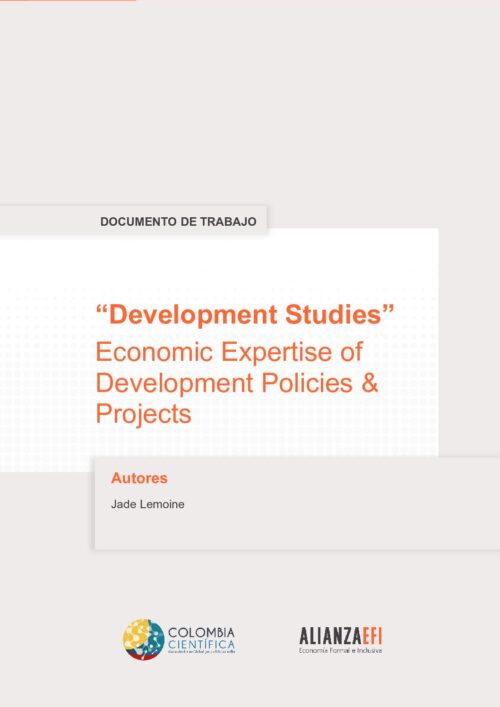According to the measurement of national accounts, in Colombia, in 2015, participation to unobserved economy represented 24.4% of total production and 29.9% of value added. These statistics were obtained thanks to the household survey (GEIH). With these results, the necessity to build a survey dedicated to small firms appears important. Indeed, GEIH resultsalsoallow to conclude that 67.7% of occupied persons in Colombia are in firms of maximum 10 persons2. These firms represent animportant share of the Colombian economy. Following CPC (Consejo Privado de Competitividad) in Colombia in 2019, 94.6% of functionning firms have less than nine employees. They correspond to 15.2% of labor workforce.
Colombian government has an intensivepolicy of informality reduction since the 2000’s. According to International Monetary Fund, Laws have contributed to reduce the amount of informality in the economy (70% in2007 to 62,3% in 2017). Policy measures have contributed to this decline (2006: Entrepreneurship Law, 2010: Formalization and Job Creation Law, 2012: Tax Reform).
The definition ofinformality used by DANE in Colombia considers: (i) the group of employees and employers work in firms with less than ten workers, (ii) workers are not covered by health and/or pension contribution. Following this approach, the question raised about the degree of informality of small firms appears relevant. Moreover, the second part of this definition raises the question of social security needs. Investigations over informal employment seek to fill the gap between two segments of the labour workforce: the formal ones who benefit from social security contribution, retirement contributions and paid leaves and those who do not. It is a matter of interest because these issues depend on the objectives of decent work. Informal employment prevents its workforce from benefiting workers essential labour rights.
Autores:
- Jade Lemoine
Categorías:
- Documentos de trabajo
